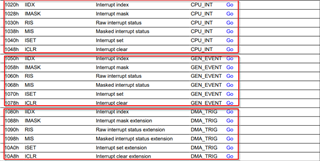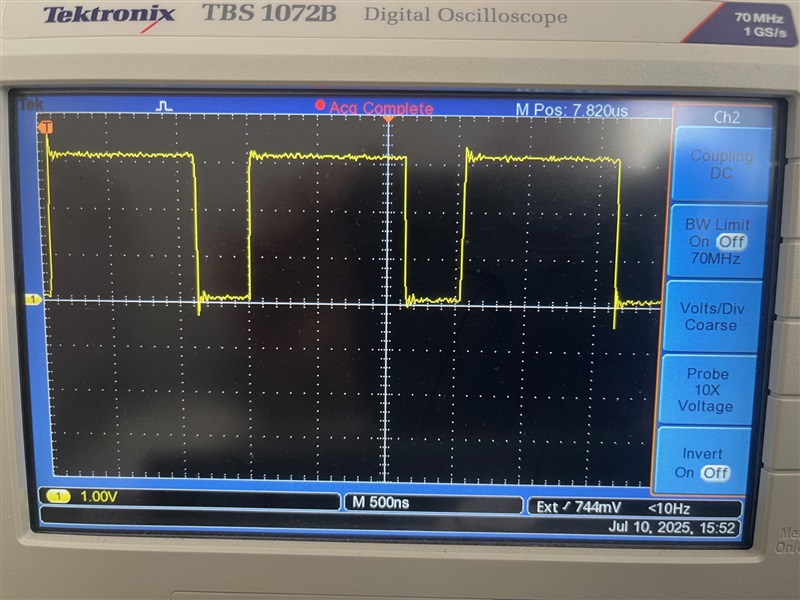Tool/software:
I have functioning correctly simultaneous ADCs converting on a GPIO trigger, positive edge. All is good.
I write to pin CCK and this starts the conversion.
I want to know when it is finished before I initiate the next conversion....this just hangs:
while(1) {
}
Any clues please ?






